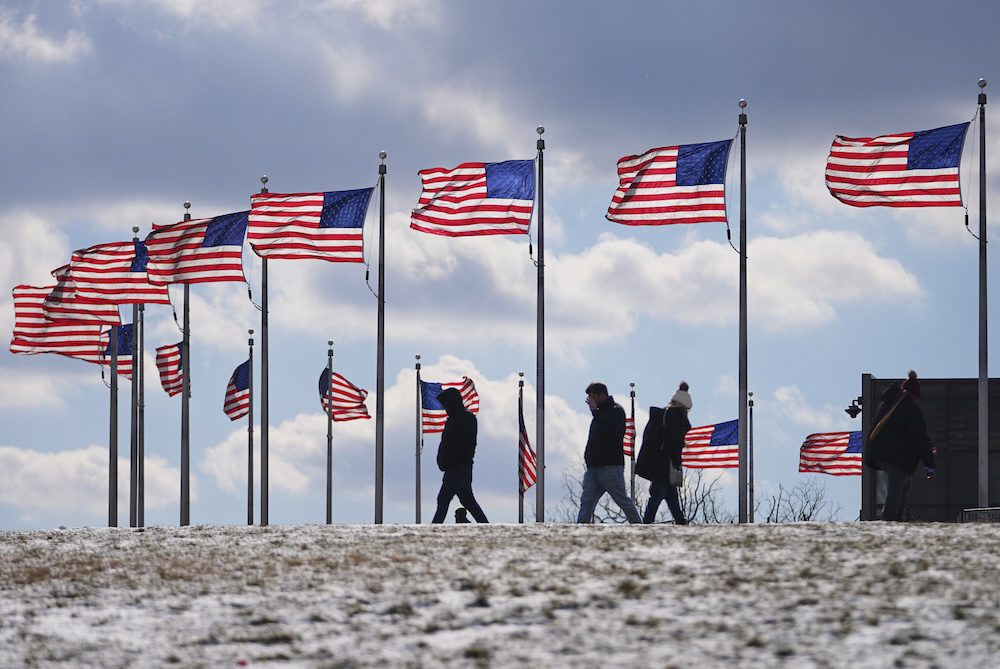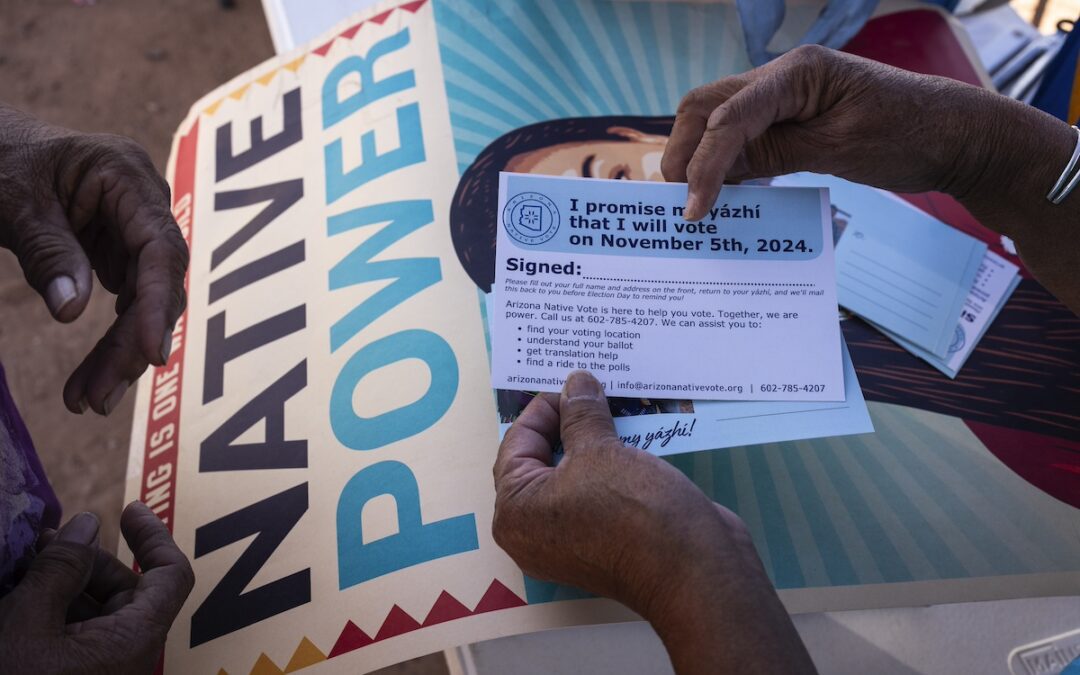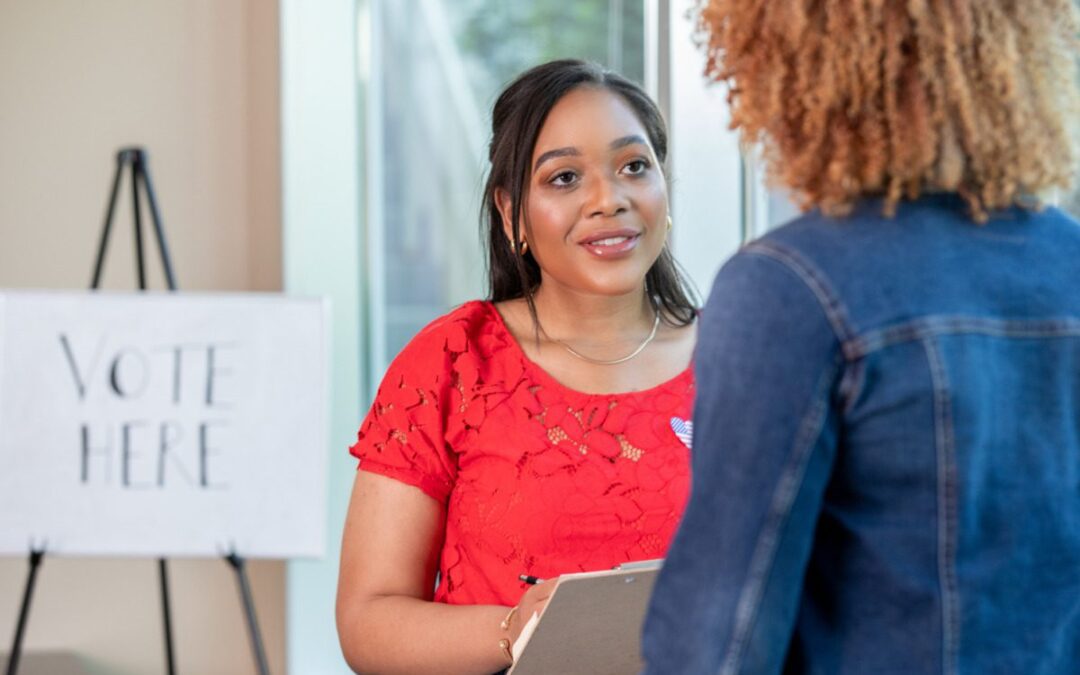
PHOENIX, ARIZONA - NOVEMBER 08: Voters arrive to cast their ballots at the Phoenix Art Museum on November 08, 2022 in Phoenix, Arizona. After months of candidates campaigning, Americans are voting in the midterm elections to decide close races across the nation. (Getty Images Photo/Kevin Dietsch)
Some candidates who appear on the ballot have already dropped out of the race.
On March 19, Arizonans will choose who they want to represent the Democratic and Republican parties in the 2024 US presidential election.
This Presidential Preference Election (PPE) is a closed election, meaning only voters registered with a state-recognized party can vote for their candidates. This year, only the Democratic and Republican parties are participating.
READ MORE: How to contact your representatives in the Arizona Legislature and Congress
This election is separate from Arizona’s Primary Election, which occurs in July and allows unaffiliated voters to participate.
Here are some important dates for voting in the Presidential Preference Election:
- March 8 – last day to request a ballot by mail
- March 12 – last day to mail in an early ballot
- March 15 – last day to vote early in person
- March 19 – election day
How to Vote
The deadline to register to vote in this election was Feb. 20.
Elections officials mailed out ballots on Feb. 21 to Democrats and Republicans who are on the Active Early Voting List (or who requested one). March 8 is the last day to request an early ballot by mail.
Those voting by early ballot can mail it in by March 12. Voters can also drop it off at a ballot drop box or voting location, as long as it is received by 7 p.m. on election day.
Voters can also cast their ballots early in person through March 15. Find early voting locations here.
On election day, March 19, voting locations will be open 6 a.m. to 7 p.m. Find voting locations here.
To vote in person, voters must bring sufficient ID, which is listed here.
Who’s Running?
The frontrunners for the Presidential Preference Election are Democrat Joe Biden and Republican Donald Trump.
However, these other names will be on the ballot, including some candidates who have already dropped out of the race:
Democrats
- Gabriel Cornejo
- Frankie Lozada
- Stephen Lyons
- Jason Michael Palmer
- Dean Phillips
- Marianne Williamson
Republicans
- Ryan L. Binkley
- John Anthony Castro
- Chris Christie (withdrawn)
- Ron DeSantis (withdrawn)
- Nikki Haley (withdrawn)
- Asa Hutchinson (withdrawn)
- Vivek Ramaswamy (withdrawn)
- David Stuckenberg
What happens after the election?
The state Democratic and Republican parties will hold conventions to determine their delegates, who will then attend the parties’ national conventions later this year to vote on which candidate will appear on the general election ballot.
Delegates must vote for the winners of the Arizona Presidential Preference Election, except under certain circumstances.
Subscribe to The Copper Courier’s daily newsletter! We keep it 💯—just like the temperature.
Support Our Cause
Thank you for taking the time to read our work. Before you go, we hope you'll consider supporting our values-driven journalism, which has always strived to make clear what's really at stake for Arizonans and our future.
Since day one, our goal here at The Copper Courier has always been to empower people across the state with fact-based news and information. We believe that when people are armed with knowledge about what's happening in their local, state, and federal governments—including who is working on their behalf and who is actively trying to block efforts aimed at improving the daily lives of Arizona families—they will be inspired to become civically engaged.


Election official in Arizona’s largest county signals a shift away from combating disinformation
One of the top election officials in Arizona's largest county, which has been roiled in recent years by conspiracy theories and intimidation of...

New study shows voting for Native Americans is harder than ever
OKLAHOMA CITY, Okla. (AP) — A new study has found that systemic barriers to voting on tribal lands contribute to substantial disparities in Native...

You could earn up to $400 to talk to your friends and family about the election
Relentless is actively recruiting 35,000 low-turnout voters in key swing states, including Arizona. The goal is to pay each of these “mobilizers” up...

Arizona organizations look to help Indigenous communities with voting obstacles ahead of November
Arizona is home to 22 federally recognized tribes and Indigenous people make up 5.2% of the state’s population, making them a crucial voting bloc....





